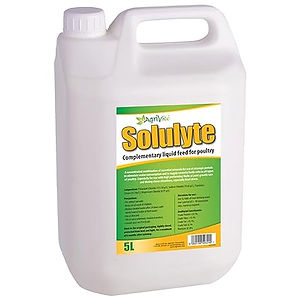Vitamins & Minerals
Once a chicken shows signs of illness its usually a race against time to save it. Because chickens are a prey bird, they are very good at hiding illness, to their detriment I might add. If they are suffering from a vitamin deficiency, the biggest problem is getting the right vitamin in time. If you can, its always good to keep some of the main vitamins in your first aid kit…just in case.
FAT SOLUBLE vs WATER SOLUBLE VITAMINS
The vast majority of Backyard Chicken Keepers will not know that there are two types of vitamins and they are absorbed into the body in different ways. There are four fat-soluble vitamins; A, D, E, and K. These vitamins are absorbed more easily by the body in the presence of dietary fat. There are nine water-soluble vitamins. These are vitamin C and all the B vitamins. Water-soluble vitamins are not stored in the body.
IS IT POSSIBLE TO OVERDOSE A CHICKEN ON VITAMINS?
The quick answer is yes!
Surplus water soluble vitamins are flushed out of the chicken’s body with no ill effects. Fat soluble vitamins that are stored in the chicken’s body fat take longer to pass through the bird’s system and therefore can build up if fed too much of one or more of the fat soluble vitamins. Excess amounts of fat soluble vitamins can be harmful and toxic…
A deficiency of one vitamin, mineral or nutrient can prevent the chicken from utilizing other nutrients and vitamins. Mineral and vitamin deficiencies greatly affect the health of your birds, in some cases a nutrition deficiency can result in other health issues.
By far the best way to correct deficiencies is through a balanced diet in the first instance, however sometimes we need to provide a little extra boost to their system. But with some vitamins, we must air on the side of caution.
Home Remedies Disclaimer
Please note; It's important that we inform you about the limitations of home remedies and the importance of seeking professional veterinary treatment. Any home remedies offered on this site are not intended to offer a cure or replace veterinary treatment, but may alleviate symptoms where professional support is not easily available. The suggestions are based on research of credible sources of information including veterans and government related bodies. Where possible we recommend that a consultation with a vet is sort in the first instance when making decisions about your chicken’s health.
Important Notice
Some of the products on this page are not specifically available for chickens and therefore the dose specified may be unsuitable for your birds. It is important that you research the correct dose for your chickens from credible sources before administering any product on this page. By purchasing through this page you accept that Everything Chicken has no liability for any errors in administering any of these products.
Fat Soluble Vitamins
Vitamin E - Must be accompanied by selenium for it to be absorbed by the body
Electrolytes for Your Chickens
Homemade Electrolyte Supplement:
2 tablespoons Granulated Sugar
2 teaspoons Baking Soda
2 teaspoons Table Salt
2 teaspoons Potassium Chloride or low-salt
Strength: 1.5 teaspoons of powder to 1 litre of water.
Make fresh every day


























